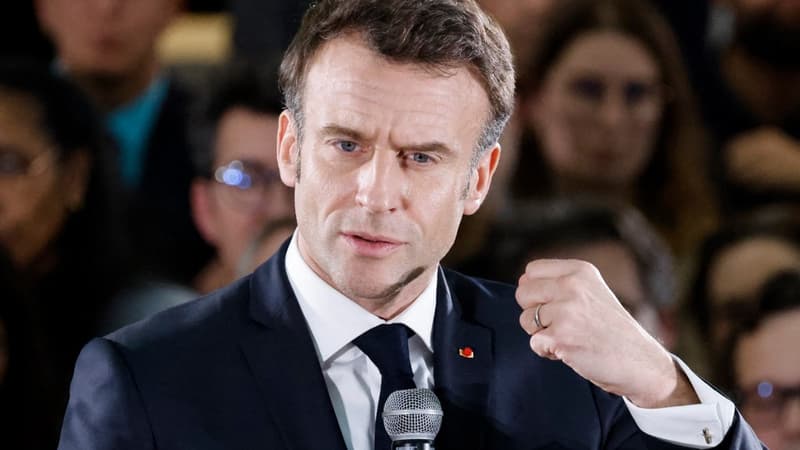Albert Einstein had this formula “God does not play dice.” God we don’t know, but neither does Emmanuel Macron, apparently.
To justify his use of article 49.3 to approve the text of the pension reform without a vote, the Head of State declared yesterday during the last Council of Ministers that he “considers[ait] that in the current state, the financial, economic situation [étaient] Too big.”
Although the last count of deputies showed a deficit of three votes to obtain a majority, Emmanuel Macron did not want to risk the fate of the reform with a roll of the dice.
What is this “economic” argument that the Head of State is talking about? There is the question of the financial balance of the pension system, but that is not only what Emmanuel Macron thinks.
The challenge of this reform is more generally for the President of the Republic the control of public spending and the seriousness of the State budget in a context of an explosion of debt.
Debt burden hits all-time high
We remind you: 3000 billion euros. This is the record amount that France owes to the creditors of the planet at the beginning of 2023. In just four years, with the health and energy crises, the amount has skyrocketed by 600,000 million euros, which represents 10 times the annual budget of national education.
This year, the country must again borrow 270 billion euros, which is also a historical record. In a context of rising interest rates, the money they lend us costs more. Two years ago we borrowed at 0%, last year at 0.4 and this year we exceeded 3% at the beginning of the year.
Specifically, the weight of the debt, that is, the interest that we pay to the bankers, will amount to 50,000 million euros this year. The equivalent this time to five times the annual budget of Justice in France.
The French debt is placed under surveillance by the Fitch and S&P rating agencies with the still fear of a rating downgrade. This would cost us even more in interest and thus force us to borrow even more. A vicious circle.
Does the pension reform change anything in this situation? In other words, would the markets have made France pay if the text had been repealed on Thursday?
“The Reform Vote? A Non-Event”
In the short term, probably not. That’s what most economists think. “A Franco-French issue that is not an event,” estimates Christopher Dembik, director of macroeconomic research at Saxo Bank. Especially since on the day of the vote, the markets had their eyes riveted on the ECB and its interest rate announcements.
When Gabriel Attal, the Minister of Public Accounts, repeated “it’s reform or bankruptcy” throughout the debates, there was a part of the government’s communication to dramatize the issue.
Like most European states that borrowed heavily during the health and energy crises, France is currently benefiting from market leniency. French 10-year bond rates also fell significantly in March and had even fallen below 3% even before Thursday’s 49.3.
Germany is financed by much less
No market sanction in the short term, but no less certain in the long term. For Vincent Juvyns, a strategist at JP Morgan Asset Management, this reform “shows that France is ensuring budget balances in the long term” and that “it contributes to increasing the participation rate in the labor market.”
Reducing public spending and boosting growth by increasing the amount of work enchants international investors and the firm of the French State is reinforced.
This is evidenced by the difference in yield between the 10-year French government bond and its German equivalent (the famous “spread”). When France currently borrows at 2.7%, the German “10-year” is at 2.1% this Friday, March 17, a difference of almost 29%. With the German rate, France would save billions of euros every year in the markets.
Almost twice as indebted and with an employment rate 11 points higher than France’s, Germany is a good client for international investors. As a result, our big neighbor is more easily financed and his debt burden is much less than ours.
Spend less to depend less on international markets, this is Emmanuel Macron’s economic bet.
Source: BFM TV


